Resource type:
On Wednesday 2 December 2020, Cumberland Lodge hosted a Dialogue & Debate webinar on Film & Social Impact, involving four experts in film discussing the role of film in contemporary politics.
These guests – ranging from directors to entrepreneurs in the arts – discussed, amongst other themes: the role of the cinematic arts in affecting social change, the responsibility of filmmakers to raise awareness about difficult subjects, and how best films can push for advances in equity.
The discussion was presented by Cumberland Lodge Chief Executive, Dr Ed Newell, with:
- Jane Fletcher – Director of Programme Delivery and Learning, IntoFilm
- Anna Kumacheva – Screenwriter and producer; PhD student; Cumberland Lodge Fellow
- Ken Loach – Film and television director (Director of I, Daniel Blake, 2016)
- Stephan Pierre Mitchell – Film director (Producer of Deleted, 2019)
Audience poll
The webinar began with a live poll that asked audience members how often they choose television shows or films based on the issues they address, rather than their entertainment value.
In response to the question, roughly 60% of audience members answered in the affirmative. 7% answered ‘every time’, 51% answered ‘often’, 38% ‘sometimes’, and 4% said ‘never’.
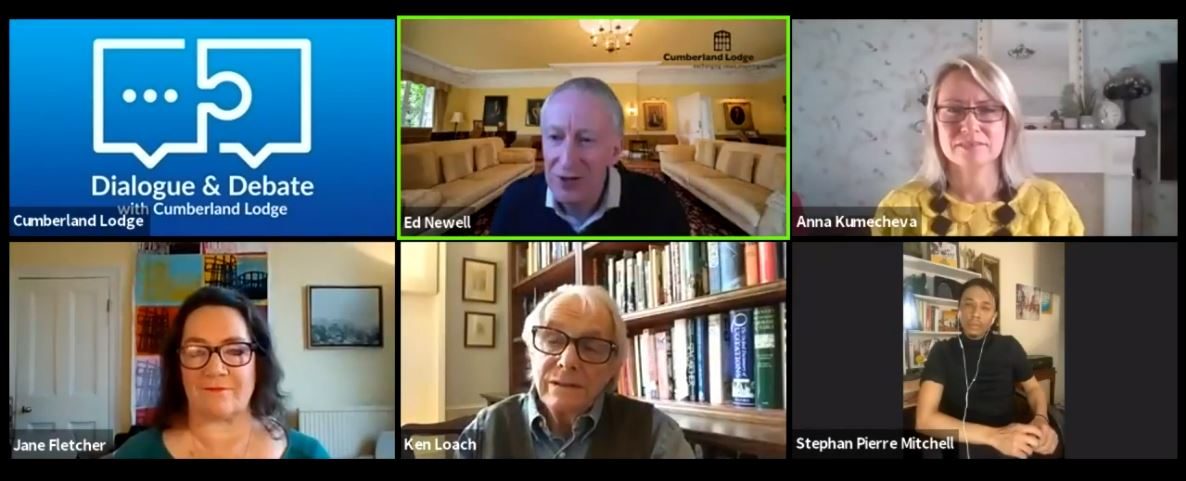
The power of film
Kicking off the discussion, film director Ken Loach addressed the poll question, admitting that he himself rarely chooses media based on the issues they cover. He suggested that a good film does not focus on ‘issues’ but, rather, on stories that are true to their characters and, subsequently, to the political subtext of their characters’ stories. When films focus on highlighting certain issues from a particular perspective, Ken cautioned, they risk becoming propaganda.
In relation to his own drama Cathy Come Home (1966), he identified the challenge that many films face in moving from audience response – however strong – to actual policy change.
Speaking to the issue of real-world change or ‘impact’, Anna Kumacheva admitted that it is almost impossible to measure the impact of a film in the short term. By incorporating filmmaking into her work as a PhD student at Lancaster University, Anna said she seeks to ‘speak truth’ to those in power. She is aware, however, that measuring the precise effect that her work on audiences is difficult.
Film’s reach and impact
Commenting on the role that exposure plays in a film’s reach or impact, film director and producer, Stephan Pierre Mitchell, highlighted the value of social media and digital platforms for reaching new audiences. Particularly during a pandemic, he admitted, social media allows for independent filmmakers to fight their way through a market that is dominated by larger production houses.
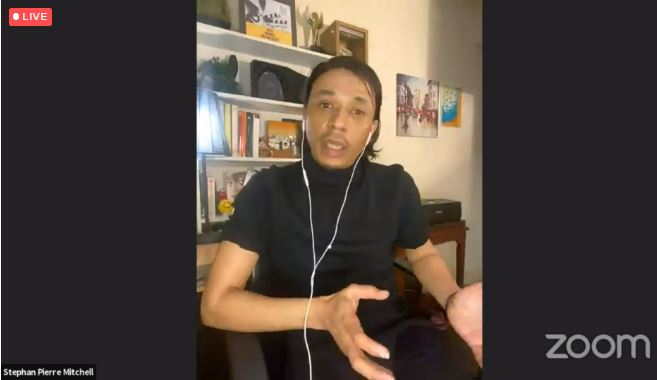
Adding to the discussion, Jane Fletcher spoke about her work at IntoFilm, an organisation that aims to bring film into the classroom and allow young people to tell their own stories.
The question of impact, for her, was approached from the perspective of young people and their access to a platform that gives them scope to share their own narratives. Particularly when dealing with thorny issues, she said that film often allows for a consideration of difficult experiences ‘at arm’s length’, making them more accessible.
The discussion on impact led into a second audience poll, which asked audience members if a film had ever inspired them to do something differently in their lives. Nearly 60% answered in the affirmative. Given that, personally, I was unable to think of a piece of media that had affected me so profoundly, it was both surprising and heartening to see this response.
Where does the responsibility for action lie?
Moving onto audience questions, the panellists were asked whether the responsibility to create positive social change through film and documentaries lies with the filmmaker or the audience.
Responding to the question, Ken encouraged a broader view of the situation. Filmmakers, he suggested, do not exist to identify a single problem to highlight, but rather can serve to lay bare a larger, fundamental issue of equity that underpins many societal issues. Films, in this sense, may participate in ‘a struggle for consciousness’. In order to most effectively push for change, filmmakers might tie their work to existing political movements, drawing from (but not being dictated by) the aims and contours of those movements.
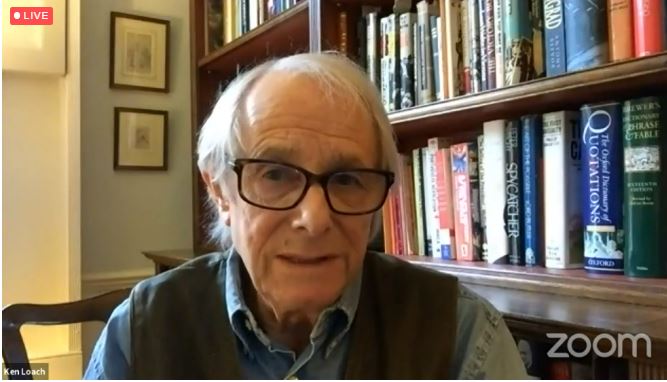
For both Jane and Anna, a belief in the potential of film to shift perspectives grew out of their personal experience. Jane spoke of the importance of broadening the worldview of young people by exposing them to diverse films outside of the mainstream. Anna spoke of her experiences of working with vulnerable children through a charity in Russia, and the insights she gained about how young people who were exposed to films behaved and communicated differently from their peers, even when they shared similarly challenging circumstances.
Supporting film and the arts
Responding to an audience question about Government attitudes to the arts, Ken began by identifying differences in approach between the political Left and Right.
For the Right, he argued, art is typically viewed within a framework of private sponsorship, with the sponsor retaining the right to decide what is addressed or spoken of. In contrast, the Left sees art as a benefit to all, and therefore as something that is worthy of collective investment.
In support of the latter position, Ken argued that art should be seen as something that belongs to everybody and something that everybody should, therefore, be able to access. Adding weight to Ken’s point, Jane described the current neglect of the arts within the school curriculum, arguing that England, in comparison to nations like Northern Ireland, neglects to value or emphasise the power of film within education.
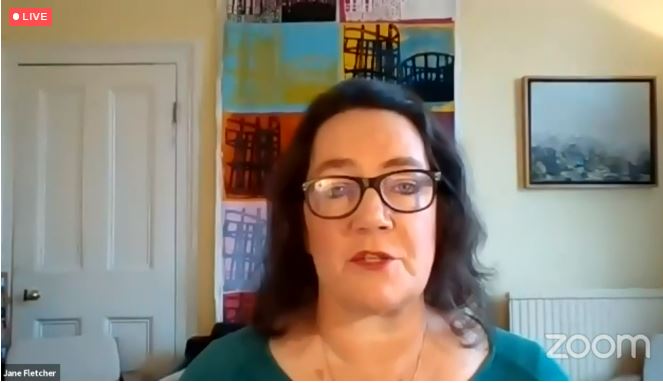
Constraints of mainstream film
Asked about the relationship between mainstream Hollywood and social issues, Stephan responded by suggesting that the key to the understanding this relationship is to look at who is funding films. In a space where profit is prioritised, he suggested, the film industry is unprepared for a fundamental shift of perspective.
Ken added to Stephan’s points, arguing that there is a profound ideological subtext to what Hollywood says and does. He feels that the idea that Hollywood could be anything other than opportunistic when it comes to social issues is false because, at the end of the day, it is run by corporate power that makes money through film and therefore has no interest in fundamental challenges to the order.
Respect and authenticity
For films that do seek to address such challenges, the question arises: how can we treat these issues with sensitivity and respect? The key to producing films that do this, Ken suggested, is to work with humility and to listen with care. If you find people who are credible, authentic, and complex, and who are true to their life stories, you will not present them two-dimensionally.
Stephan shared that, in order to navigate this question, his work privileges the idea of dignity. In contrast to TV coverage which often dehumanises its subjects, his work always seeks to respect the people and communities it represents.
Final reflections
In closing, the panellists were asked which issues they would like to see represented more in film. For Stephan, this was AIDS and the devastating impact it continues to have; while for Jane, bullying, wherever it may manifest, was an important issue to address. Anna, describing her own film project, spoke of the hidden crisis of forced sex work amongst students in Britain, mentioning that her focus, in speaking of this issue, was not just to look at the problem itself, but also at the many underlying frameworks from which it arises.
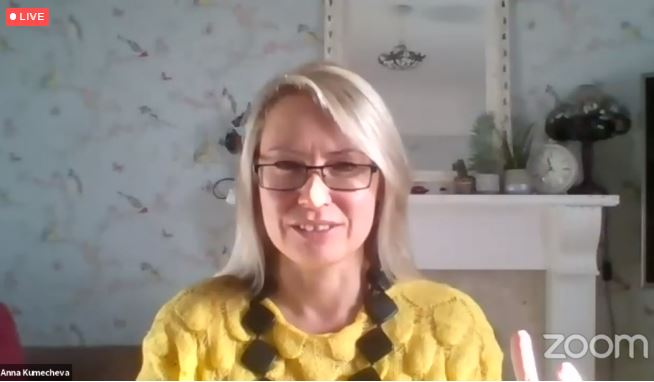
Finally, Ken spoke of the importance of filmmakers telling ‘the truth’, not just superficially, but exhaustively. Films must tell the truth, he said, about empire and racism, modern-day imperialism, and regional disparities, alike. He likened the role of the filmmaker to that of the surgeon, saying that the task at hand is not just to treat the symptoms, but to diagnose the illness – the issues that underpin the problems we speak about. The fundamental responsibility of the filmmaker, he said, was ‘to leave no question unasked’.
The panellists, in speaking of film, spoke also of larger questions of representation, equity and solidarity. In a moment when we are navigating the fraught terrain of truth and power, and in a year where inequities are more apparent than ever, this discussion provided a valuable platform through which to examine the challenges with which we struggle and the forms through which we might begin to address them.
Watch on demand
You can listen to an audio recording of this webinar below, or watch it back on video here.
